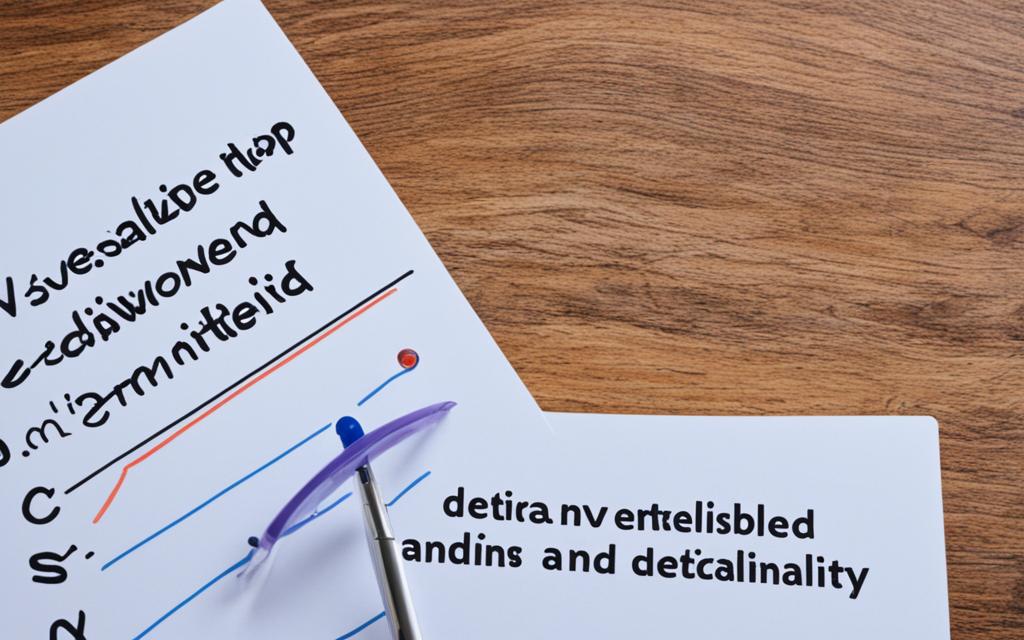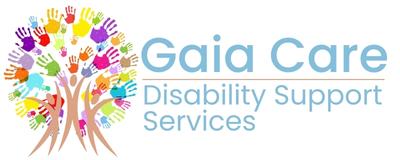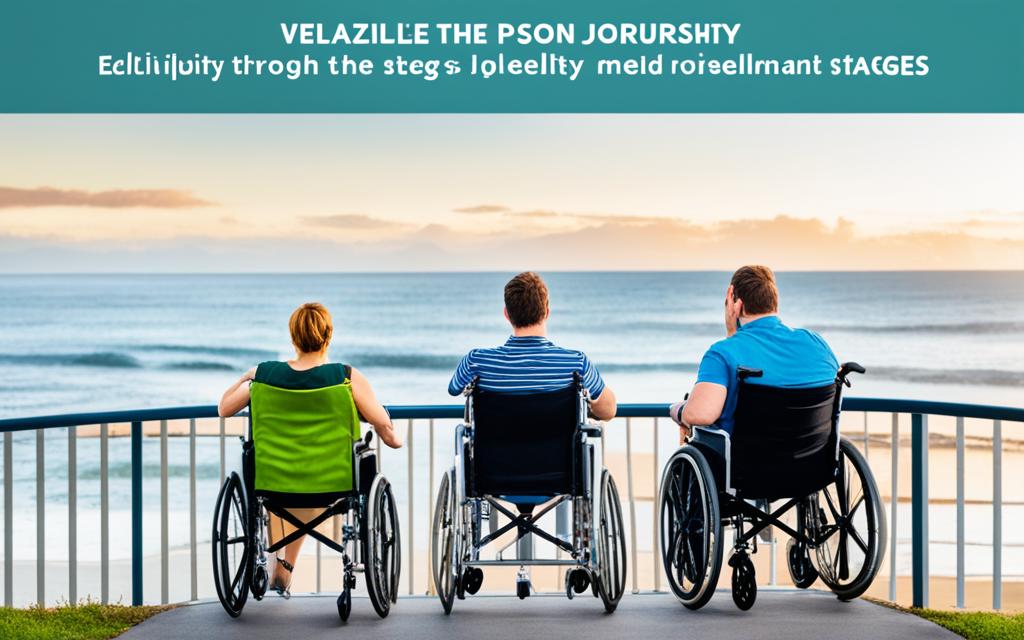Queensland is known for its stunning landscapes and its drive for inclusion. An estimate shows between 5,000 and 15,000 Aboriginal and Torres Strait Islander people in Queensland could soon get vital support. This is a sign of growing efforts to improve life for those with disabilities, especially within indigenous communities.
For the locals, knowing the NDIS eligibility criteria checklist, NDIS eligibility guidelines, and NDIS eligibility for persons with disabilities in Queensland opens the door to vital services. These services aim to boost independence and enable active daily participation.
Key Takeaways
- Examine the crucial points of the NDIS eligibility criteria checklist, providing clarity on who can access life-transforming support in Queensland.
- Insight into the unique provisions for Aboriginal and Torres Strait Islander individuals, highlighting targeted strategies within the NDIS framework.
- Learn about the vital connections between support categories, residency requirements and the impact of disability on daily life.
- Discover how the accessibility of services for Queenslanders with a disability is bolstered by the diverse funding mechanisms backing the NDIS.
- Navigate the intricate path of eligibility reassessment and long-term support strategies set out by the nuanced NDIS and NIISQ guidelines.
Understanding NDIS Eligibility Criteria In Queensland
Many people in Queensland find it tough to get support from the NDIS. But knowing the NDIS eligibility requirements and how to qualify for NDIS in Queensland is key. Let’s break down the main criteria you need to meet.
Permanent Disability and its Impact on Daily Activities
The NDIS checks if someone has a permanent disability in Queensland. This means a condition that makes daily tasks tough and lowers the quality of life. It covers a wide range—like cognitive, sensory, physical, or psychological issues. These must be significant, lifelong barriers.
Age Requirements for NDIS Access
To join the NDIS, you have to be under 65 when you apply. The scheme also helps kids from birth until 9. This is bigger than the old 0-6 range. It focuses on helping young kids grow and develop well.
- The NDIS also helps with early intervention
- It especially supports children from 0 to 9 years old
Residency Status: Citizens, Permanent Residents, and Visa Holders
Being an Australian resident is a must for NDIS help. This covers Australian citizens and permanent visa holders, including Protect Special Category folks. These groups show Australia’s care for those needing long-term assistance. GPs and allied health pros are ready to help check if you’re eligible and fill out your application.
The NDIS aids Australians with different disabilities, through teamwork between folks and community helpers. This makes the scheme’s benefits real for everyone, from country areas to the cities.
The NDIS makes sure resources fit for Aboriginal and Torres Strait Islander peoples in Western Queensland. For anyone at any point in their NDIS path, Rural Community Connectors are there to guide through the system.
Step-by-Step Guide to the NDIS Eligibility Assessment Process
Beginning the NDIS eligibility assessment process is key for Queensland residents needing support. This process helps figure out who needs help the most. It fits the NDIS’s main goal of giving targeted NDIS eligibility support in Queensland.
Utilising the NDIS Access Checklist
The NDIS Access Checklist is the first step. It helps people see if they meet NDIS’s needs. This checklist is essential in matching one’s situation with the NDIS criteria.
Initiating Contact with the NDIA
After looking at the Access Checklist, people should get in touch with the National Disability Insurance Agency (NDIA). Talking to the NDIA is vital. It’s how you formally show you’re interested and get an Access Request Form.

Gathering Evidence of Disability or Developmental Delay
Applying for the NDIS means you need solid evidence. Doctors and others who know the applicant’s condition help by documenting it. This proof is the base of the application, showing why NDIS support is needed.
This evidence isn’t just routine. It’s crucial for showing the real difficulties caused by the disability. It gives the NDIA a clear view of how the condition affects the person’s life. This ensures the NDIS eligibility assessment process is fair and thorough.
How to Qualify for NDIS in Queensland: A Detailed Checklist
For Queensland residents keen on the NDIS, knowing the NDIS eligibility criteria checklist and NDIS eligibility requirements is vital. This checklist helps you understand what’s needed to apply. It uses fresh data to clarify who can get support.
- Age Consideration: Many under 65 in Queensland are eligible for NDIS. This helps young people who need support early on.
- Residency Status: You must be an Aussie citizen or have a certain visa to meet NDIS eligibility requirements in Queensland.
- Permanent Impairments: If permanent issues stop you from everyday tasks, you could qualify. It’s crucial to show how your condition affects your life.
- Support Network Inquiries: The NeuroAssist InfoLine gets lots of questions, showing people’s eagerness to learn about NDIS eligibility.
- Access Request Success: Contacting NDIA and getting an Access Request Form means a good start to the process for many.
There’s a worry though. Many in Queensland with certain conditions might not know they can get NDIS help. It’s key to spread the word more. There are lots who need daily help but don’t know NDIS could support them.
For those who can get early help, it’s critical to go for it. Some can get NDIS benefits based on future needs.
Help is out there. You can ring the NDIS at 1800 800 110. Places like Legal Aid Queensland and the NDAP Provider Finder can help too. They guide you through decisions and reviews. Just remember, ask for an internal review within three months. Then, you have 28 days after that for an external review if needed.
Learning the NDIS eligibility criteria checklist and tapping into the right help is crucial. It’s how to successfully navigate the NDIS in Queensland. And it’s how to get a better life quality if you’re eligible.
The Early Intervention Approach of NDIS Eligibility
The NDIS early intervention strategy aims to give early help. This improves long-term results for people with disabilities. It focuses on offering proactive support, especially in Queensland.

NDIS’s early help is more than a theory. It comes from thorough research and evidence. This support model stresses the need for quick action. This helps lessen the disability’s impact on someone’s abilities.
Benefits of Early Intervention Access
NDIS early help lets people with permanent impairments improve their skills. This leads to fewer needs for intense help later. The scheme’s goal is to empower people, backed by over 10,000 people and 3,976 review submissions.
Evidence Required for Early Intervention Support
To get NDIS early support, you need proof that it really helps. Over 1,000 people with disabilities affirmed its value through idea testing sessions and 287 consultations across Australia.
The criteria for early NDIS support are strict, but fair. They include feedback from 155 virtual and 80 face-to-face meetings. This shows a wide mix of experiences shaping the approach, including 3150 online and 746 organizational inputs.
In Queensland, NDIS criteria reflect inclusivity and effectiveness. Engagement methods, from 73 phone interviews to insights from 16 Disability Organisations, prove essential. They help make early support more accessible.
NDIS Eligibility Support in Queensland: Where to Find Help
If you live in Queensland and have a disability, finding help with NDIS eligibility support is key. You can get assistance to learn how to qualify for NDIS in Queensland. This makes sure you get the benefits you deserve.
Assistance with Access Request Forms
First, many seek help with Access Request Forms. These forms are crucial. They show your needs and situation under the NDIS eligibility guidelines.
Submitting a well-prepared Access Request Form can make your NDIS assessment process smoother.
Utilizing the NeuroAssist InfoLine for Guidance
The NeuroAssist InfoLine is here to help. It gives expert advice to ready you for the planning meeting. This is a big part of joining the NDIS. Using this service means you’re well-informed and ready to ask for the support you need.
Whether you have questions about eligibility or are worried about the assessment, the InfoLine is a great support. It’s there to help people seeking NDIS eligibility support in Queensland.
- Assistance with understanding and completing Access Request Forms
- One-on-one guidance for NDIS planning meeting preparation
- Resource for ongoing support throughout the eligibility process
It’s vital to ensure you meet the NDIS criteria and understand your rights. Using resources like the NeuroAssist InfoLine helps you get NDIS benefits. This creates a more supportive environment for Queenslanders with disabilities.
Alternative Options If Not Eligible for NDIS
If you find out you’re not eligible for the NDIS eligibility for persons with disabilities in Queensland, don’t worry. Another pathway is the Queensland Community Support Scheme (QCSS). It’s made for those not covered by the NDIS.
The QCSS helps people do things that might be hard otherwise. It helps you live better at home and reduces feeling left out by getting involved in the community. The NDIS eligibility guidelines are there to make sure everyone gets help, even if they don’t meet NDIS requirements.
You don’t need someone to refer you to get help from the QCSS. They help with things like shopping, having fun, doing chores, looking after yourself, and gardening. This makes sure you’re safe and happy.
To get in touch with the QCSS, you can call, submit a form online, or send an email. They will talk to you one-on-one to understand your needs and goals. The latest information about QCSS was updated on the 3rd of October, 2023. Changes were made on the 18th of September, 2023.
Even if you’re unsure about NDIS eligibility for persons with disabilities in Queensland or how you fit with the NDIS eligibility guidelines, remember, that there are other ways to get support in Queensland.
NDIS Eligibility Assessment Outcomes and Post-Assessment Support
The journey to get support from the National Disability Insurance Scheme (NDIS) is crucial for many in Queensland. When they check your details against the NDIS eligibility criteria, they look at your age, where you live, and your disability type. People aged 7 to 65, who are Australian citizens or permanent visa holders with a lasting disability, can hope for approval.
Understanding the appeal process is vital for those applying. If denied, you can ask for an internal review. This shows the NDIS tries to be fair to everyone in Queensland. But, if you’re not eligible, you can look for other help like the Endeavour Foundation offers. But remember, these options usually need you to pay out of your pocket. Not joining the NDIS might mean missing out on a lot of help that could change the services you’re getting now.
In Queensland, the effort to help residents doesn’t stop. For those who can’t get NDIS help, there are many support services listed on the NDIS website. These services are available all over the country. This way, help is offered to everyone, fitting different needs and situations.
NDIS Eligibility Assessment Outcomes and Post-Assessment Support
Q: What constitutes a permanent disability, and how does it impact daily activities for NDIS eligibility?
A: A permanent disability limits someone’s abilities in key life areas like moving, talking, and socializing. For NDIS, it’s crucial to show how these limits affect daily life. Applicants must prove the disability is long-term.
Q: What are the age requirements for accessing the NDIS?
A: You must be under 65 when you apply for the NDIS. This rule ensures applicants can get support before they’re eligible for aged care.
Q: Who is eligible in terms of residency status for the NDIS in Queensland?
A: To qualify for the NDIS, you need to live in Australia. You also have to be an Australian citizen or hold a Permanent Visa or a Protected Special Category Visa. Meeting these criteria is essential.
Q: How do I use the NDIS Access Checklist?
A: The NDIS Access Checklist helps figure out if you might qualify for support. It asks about age, where you live, and how your disability affects you. You can find the checklist on the NDIS website or get it from a local office.
Q: How should I initiate contact with the NDIA for eligibility assessment?
A: Contact the NDIA directly by phone, through their website, or by visiting a local office. Be ready with information about the disability. This helps start the process smoothly.
Q: What evidence is required to prove disability or developmental delay for NDIS access?
A: You need detailed evidence like medical reports showing how the disability impacts your life. This proves the disability or condition is permanent.
Q: What are the benefits of early intervention for NDIS access?
A: Early intervention helps people with disabilities improve their skills early on. It tries to slow the disability’s progress, leading to better outcomes and less need for future support.
Q: What evidence is required for early intervention support under the NDIS?
A: For early intervention, you need evidence showing how early help will lessen the disability’s future impact. Health professional reports are key. They should explain how early intervention can help.
Q: Where can I get assistance with the NDIS Access Request Forms?
A: You can find help with NDIS forms at local offices, the NeuroAssist InfoLine, and from Support Coordinators or Local Area Coordinators. They’ll help you understand and complete the forms correctly.
Q: How can the NeuroAssist InfoLine help me with the NDIS eligibility process?
A: The NeuroAssist InfoLine guides you through the NDIS eligibility stage. They answer questions and help prepare for your NDIS meeting. They explain what you need for your application.
Source Links
- NIISQ vs NDIS – About NIISQ
- QAIHC National Disability Insurance Scheme Document
- Queensland Community Support Scheme – Community Home Care Services
- DiverseAbility – WQPHN Resources
- Become NDIS Provider QLD – ProviderPlus
- Are You Eligible for the NDIS? – MS Queensland
- National Disability Insurance Scheme – Legal Aid Queensland
- Our Final Report – Guide for People with Disability and Their Families 2023 – NDIS Review
- NDIS Eligibility – Endeavour

